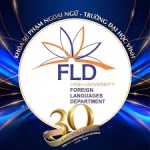Speaker
Description
Engaging Generation Z, the digital natives, requires creative instructional methods. To enhance learning outcomes and experiences for Gen Z students, this presentation looks at integrating artificial intelligence (AI) into English lessons, specifically from the perspective of music composition. It assesses the benefits and drawbacks of utilizing AI in music composition, an approach that stimulates students' creativity and linguistic abilities at the same time. The first part of the presentation defines the traits of Gen Z learners, emphasizing their familiarity with technology and preference for interactive learning environments. The presentation then analyzes the pros and cons of integrating AI in music composition, highlighting how it can increase student engagement and creativity while also acknowledging potential drawbacks such as reduced creativity and over-reliance on technology. Next, using examples of free AI songwriting platforms that help students write and edit lyrics and music for group projects while practicing their English, the presentation provides practical insights. Additionally, it will discuss first-hand classroom experiences using AI tools, emphasizing both successes and challenges. These anecdotes provide a realistic view of the implementation process and its impact on student motivation and learning. Finally, the presentation offers practical advice for English teachers eager to incorporate AI-powered music activities into their curriculum, empowering them to transform their teaching practices.
Key words: Generation Z; Artificial intelligence (AI); Music composition; Language learning; Creative instructional methods

